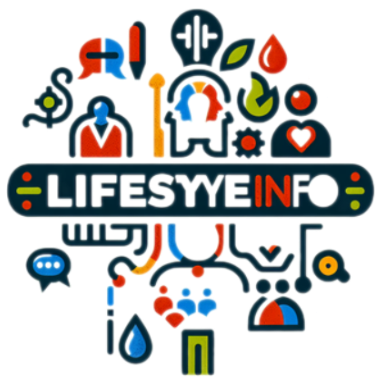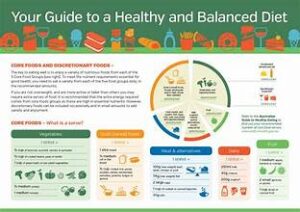In 2024, maintaining a balanced diet is crucial for optimal health and well-being. With a plethora of diet plans available, it can be overwhelming to choose the right one. This article highlights some of the best balanced diet plans for 2024, focusing on their benefits, key components, and tips for successful implementation. These plans are designed to provide comprehensive nutrition, promote overall health, and support various lifestyle goals.
1. Mediterranean Diet
Overview: The Mediterranean diet is inspired by the traditional eating habits of countries bordering the Mediterranean Sea, including Greece, Italy, and Spain. It emphasizes whole foods, healthy fats, and a variety of plant-based ingredients.
Key Components:
- Fruits and Vegetables: Rich in vitamins, minerals, and antioxidants.
- Whole Grains: Such as quinoa, brown rice, and whole wheat.
- Healthy Fats: Primarily from olive oil, nuts, and avocados.
- Lean Proteins: Including fish, poultry, and legumes.
- Moderate Dairy: Mostly from cheese and yogurt.
- Red Wine: In moderation, if desired.
Benefits:
- Promotes heart health.
- Reduces the risk of chronic diseases.
- Supports weight management.
Tips for Success:
- Focus on fresh, seasonal produce.
- Incorporate herbs and spices for flavor instead of salt.
- Aim for at least two servings of fish per week.
2. DASH Diet (Dietary Approaches to Stop Hypertension)
Overview: The DASH diet is designed to combat high blood pressure (hypertension) by emphasizing nutrient-rich foods and reducing sodium intake.
Key Components:
- Fruits and Vegetables: High in potassium and fiber.
- Whole Grains: Such as oatmeal, barley, and whole wheat.
- Lean Proteins: Including poultry, fish, and beans.
- Low-Fat Dairy: For calcium and vitamin D.
- Nuts and Seeds: Provide healthy fats and additional nutrients.
Benefits:
- Helps lower blood pressure.
- Improves overall cardiovascular health.
- Aids in weight management.
Tips for Success:
- Limit sodium intake to 2,300 mg per day, or ideally 1,500 mg.
- Choose low-fat or fat-free dairy products.
- Avoid processed foods high in salt and sugar.
3. Plant-Based Diet
Overview: A plant-based diet focuses on foods derived from plants, with minimal or no animal products. It can include various approaches, such as vegetarianism or veganism.
Key Components:
- Fruits and Vegetables: Essential for vitamins, minerals, and fiber.
- Legumes: Beans, lentils, and chickpeas for protein.
- Nuts and Seeds: Sources of healthy fats and protein.
- Whole Grains: Like brown rice, barley, and whole wheat.
Benefits:
- Reduces the risk of chronic diseases.
- Supports healthy weight management.
- Promotes better digestion and gut health.
Tips for Success:
- Ensure adequate protein intake through legumes, nuts, and seeds.
- Supplement with vitamin B12 if following a vegan diet.
- Balance your meals to include a variety of plant-based foods.
4. Flexitarian Diet
Overview: The flexitarian diet is a flexible approach that primarily focuses on plant-based foods while allowing for occasional consumption of meat and animal products.
Key Components:
- Fruits and Vegetables: As the main focus of the diet.
- Whole Grains: Including quinoa, brown rice, and oats.
- Protein Sources: Emphasizes plant-based proteins like beans and tofu, with occasional meat and fish.
- Healthy Fats: From sources like avocados, nuts, and olive oil.
Benefits:
- Offers the benefits of a vegetarian diet with added flexibility.
- Helps with weight management and overall health.
- Reduces the environmental impact compared to a traditional meat-based diet.
Tips for Success:
- Plan meals to ensure adequate protein and nutrient intake.
- Gradually increase plant-based meals to ease into the diet.
- Use meat as a flavor enhancer rather than the main component of meals.
5. Whole30 Diet
Overview: The Whole30 diet is a 30-day program that eliminates certain food groups to help reset your body and identify food sensitivities.
Key Components:
- Whole Foods: Focus on unprocessed foods such as fruits, vegetables, meats, and nuts.
- Avoid: Sugar, alcohol, grains, legumes, dairy, and processed foods.
Benefits:
- Can help identify food intolerances and sensitivities.
- Promotes a clean eating approach with whole, unprocessed foods.
- May lead to improved digestion and energy levels.
Tips for Success:
- Prepare meals in advance to stay on track.
- Read food labels carefully to avoid hidden sugars and additives.
- Focus on whole, nutrient-dense foods to maintain energy and satisfaction.
Conclusion
Selecting the right balanced diet plan in 2024 involves considering your health goals, lifestyle, and personal preferences. The Mediterranean, DASH, plant-based, flexitarian, and Whole30 diets each offer unique benefits and approaches to achieving optimal health. By incorporating these diet plans into your routine, you can enhance your overall well-being, manage your weight, and reduce the risk of chronic diseases. Remember to consult with a healthcare professional or registered dietitian to tailor these plans to your individual needs and ensure a balanced and sustainable approach to your diet.


